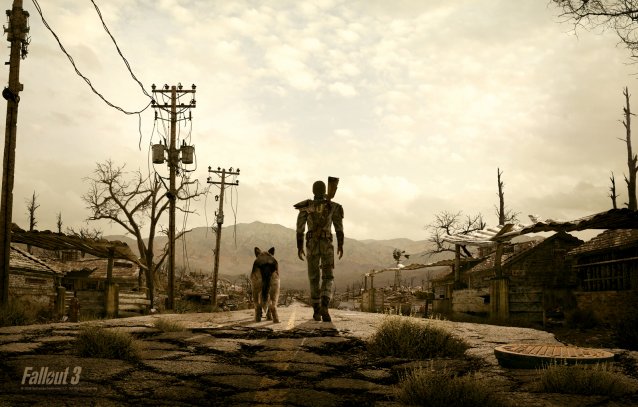

Watch Dogs is exactly what you think it is. It’s Assassin’s Creed 4 meets GTA 5 meets Batman Arkham City… but--despite the pedigree of its influencers--it narrowly fails to better any of them. Don’t misunderstand: it’s a great game that combines some smart ideas with an innovative setting, but it’s also one that arrives exhausted from its cross-generational birth. There are some wonderful moments and features in Watch Dogs; but also plenty of tired tropes and trappings that should’ve been left firmly in the past.
The plot focuses on the high-tech exploits of Aiden Pearce, hacker and self-styled vigilante. He’s a bit of a dullard, really, and prone to occasional bouts of hypocritical self-reflection (in between shooting men in the face, and running down hobos). Before the action starts we learn that Pearce and his partner Damien get involved in a risky hack job at a hotel, a mission that goes hideously wrong and ends up with an unknown villain retaliating against Aiden. His niece, Lena, dies in the crossfire and so begins a classic tale of one man’s quest for answers / revenge. For all the game’s reliance on tech, it’s the basest of human emotions that drives the story forward, which is either a clever nod from the developers or a lucky coincidence. Ubisoft Montreal, I’m giving you the benefit of the doubt on this one!
Story-wise, the game is mostly dud. All the characters are unimaginative stereotypes, with thin motivations and forgettable personalities. Hacker chick with piercings? Check. Sinister, elderly villain? Check. Gang leader with a stupid name? Check. The plot itself is a mixture of predictable twists, dressed up with strange leaps of logic and enough technobabble to make Bill Gates soil his beige chinos with delight.
However, while the overarching narrative is forgettable, there are some delightful set-pieces and micro-plots to discover. These more than make up for predictable story-beats. One mission has you searching for a secret bunker on an abandoned island, close to the city centre. The stirring Vangelis-style music mixes with a glorious in-game sunset to make it feel as if you’re genuinely uncovering a secret new world, right in the heart of the urban sprawl. Another neat little moment has you searching for a rival hacker in a nightclub. No spoilers here, but he turns the hacking system back on you, and changes the info you see when you scan other club-goers. It’s a wonderful role reversal, making you feel powerless, and forcing you to question Aiden’s motives much more than any downbeat monologue ever could. So you’ll enjoy Watch Dogs’ narrative in piecemeal, rather than as a whole.
At first glance, the game’s setting appears as shallow as its inhabitants. Chicago is a lively mixture of skyscrapers, slums, and the token ‘countryside’ bit--sadly inferior next to the wonderfully colourful, sun-drenched San Andreas of GTA 5. Look closer, though, and the city’s true beauty becomes apparent. It’s densely packed with details, hidey-holes, and some utterly dark secrets--many of which you only start to discover once you start poking around side-missions and optional quests. Perhaps my favourite moment in the whole game happens when I cause a mighty car crash, and see a couple of ghoulish pedestrians taking videos of the carnage on their phones. It really brought the game alive for me. The only real reservation I have about Watch Dogs’ Chicago is that--during the majority of my 40+ hour playthrough--it was either dark or dull. In rare moments of sunshine the game looks beautiful, really showing off its new-generation credentials.
It was vital to pack so much into Chicago itself, because the city is intrinsically linked to how this game plays. Unless you’ve been living under a hermit, who has been living under a rock, for the past three years, you know that Aiden’s phone can hack various things within the environment. This is what separates Watch Dogs from other open-world games, and it isn’t just a gimmick: it’s integral to everything you do.
Hacking cameras, for example, lets you probe and explore every inch of the city. There are cameras EVERYWHERE, and you can--if you want--traverse huge in-game distances by hopping from one hackable device to the next. It’s hugely liberating, and provides loads of strategic gameplay options. One sweet example happens when another player invades my game to try and hack my phone for secrets and cash. Instead of rushing after my attacker, revealing my position, I hack the cameras and jump between them until I’ve profiled him. I then quickly, quietly flank his hiding place before terminating his intrusion with a shotgun shell to the brain. Good night, and a truly unique Watch Dogs moment.




 4 Gaming Trends You'll See in 2015 and Beyond
4 Gaming Trends You'll See in 2015 and Beyond AC Syndicate: How to Find All Pressed Flower Locations and Rewards
AC Syndicate: How to Find All Pressed Flower Locations and Rewards How to Complete GTA 5 Online Series A Funding Heist : Steal Meth
How to Complete GTA 5 Online Series A Funding Heist : Steal Meth Star Wars Battlefront Beta Tips and Tricks for Walker Assault and Drop Zone
Star Wars Battlefront Beta Tips and Tricks for Walker Assault and Drop Zone 5 Things Id Like To See Happen in Fallout 4
5 Things Id Like To See Happen in Fallout 4